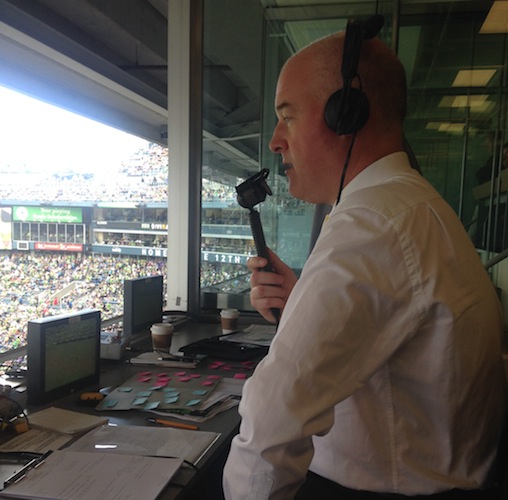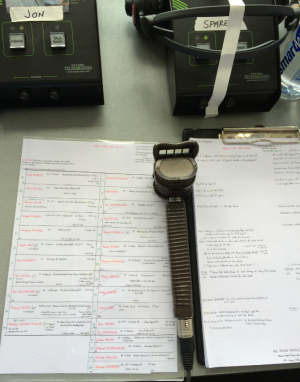Champion’s soccer calls not just lip service

Jon Champion was hooked when he first used the “lip microphone” 30 or so years ago at BBC Radio.
Then 19-years-old, Champion was impressed by the audio clarity of his match commentaries. The microphone filtered out ambient noise from impassioned fans sitting in close proximity to his broadcast location in stadiums across England.
The device has been his favorite microphone for commentating on matches in seven straight FIFA World Cups, 20-plus seasons of UEFA Champions League and English Premier League matches, numerous FA Cup Finals and more.

“I would just feel naked without it now,” said Champion, who earned critical acclaim for his work as the second match commentator team during ESPN’s coverage of the 2014 FIFA World Cup in Brazil. “Whenever I broadcast anywhere around the world, I always have it.”
That includes tonight at Red Bulls Arena in Harrison, N.J., where Champion will be joined in the booth by co-commentator Alejandro Moreno and sideline reporter Monica Gonzalez to call the Bayern Munich vs. Chivas Guadalajara match (ESPN, 8 p.m. ET).
“We offered the lip mic to Jon, before he even asked for it,” said ESPN soccer producer Chris Alexopoulos. “We wanted him to feel as natural as possible for the matches he was doing in the U.S. before, during and after the World Cup.”
Lip microphones evoke images of a bygone era in broadcasting and are part of an industry tradition in the United Kingdom dating back to the 1930s, when it was called a “ribbon mic.” It is mostly used by news reporters and sports commentators covering events.
While headset microphones are used more often in the United States, most UK TV sports broadcasters prefer the lip mic for live soccer commentary.
“Don’t forget that stadiums in England maybe smaller than the NFL stadiums, but they still have 60,000 people and the crowds are closer to you. Often, you are sitting in the middle of the crowd,” Champion said. “If you have an open mic from the headset, the crowd noise bleeds through.”
(During on-camera pre-game, halftime and post-game segments, Champion uses the more traditional stick mic for purposes of appearance.)
“The lip mic is designed so the side of the microphone you speak into is much stronger than the other sides,” Champion said. “You get gentle effects coming through the other sides of the microphone, so you don’t get obliterated.”







